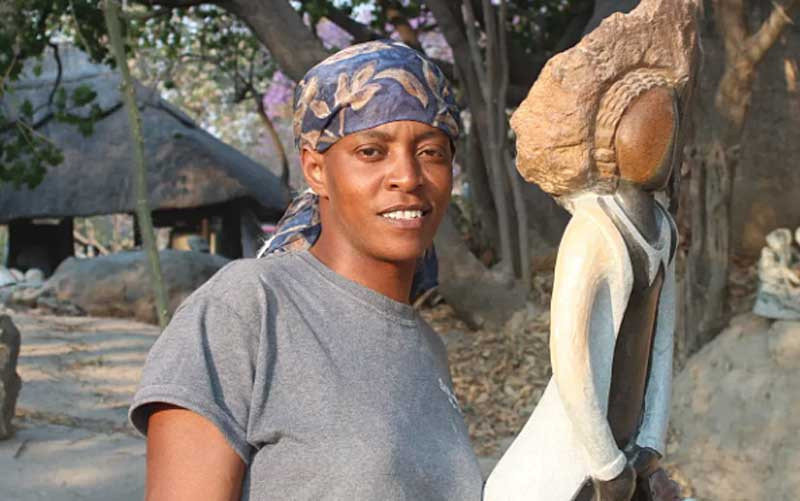
SINCE his return from China in 2022 after three years of an extended stay due to the COVID-19-induced lockdown, visual artist Tafadzwa Edias Sachiwo has nostalgia for good business transactions and use of advanced technologies in China.
Born and raised in Nyanga, Sachiwo was apprenticed into stone carving of elephants by his brothers.
Since then, around 1997, fine art renditions of elephant figurines engraved on dolomite, red jasper and or butter jade stones, among other wild animals, have become what he is best known for. In Chitungwiza, Sachiwo plied his trade in places such as Chikwanha Industrial Area and backyards until he was allocated a place at the Chitungwiza Arts Centre in 2013 where he acquired experience to become an ambassadorial figure.
Speaking to NewsDay Life & Style, Sachiwo said his huge elephant carving appealed to the Chinese more than anything else he presented as art, adding that he wished if more opportunities were availed either through cultural exchange programmes or business trips.
“We work as a team and my opinion is highly representative of our collective power as artists that the Sino-Zim relations can be further strengthened through the arts which are always both business and entertainment.
“I was in Shiyani town, Hubei province, on invitation in 2017, 2018 until the year 2022. I worked well and up until now I have nostalgia for good business transactions and usages of advanced technologies in China. I would certainly want to be back and if an opportunity arises, I would appreciate a proper arrangement of expos and exhibitions including sealing more business deals.
“People would come in convoys of four or five kombis to see my artworks but however they would just disappear and would never come back to buy. Fortunately, while I was wondering about all this, other buyers would come and transact business after a week or so. I got paid well and I believe that there is room for improvement,” Sachiwo narrated.
“My stay in China opened opportunities for myself and Chitungwiza Arts Centre at large. I, however, wish if we could have assistance through the Chinese embassy representation and our government arrangements to create more viable business opportunities for artists,” he added.
- Veld fire management strategies for 2022
- Stop harassing media for reporting truth
- Veld fire management strategies for 2022
- News in depth: Mnangagwa’s push for $12 billion mining industry imperils communities
Keep Reading
Shepherd Deve who is popular for carving penguins, mongoose, falcons, white stocks and koi fish which is common in South America said his koi fish stone carvings or more specifically nishikigoi were coloured fish which were kept for decorative purposes in outdoor koi ponds or water gardens. Deve and a colleague, celebrated artist Elvis Mamvura, were together in Hubei where they were popular for producing good pieces of art.
“It is unfortunate that I had no time and resources to carve the koi fish because the stones were too hard to come up with the intricate shapes and coil dances produced by the koi fish,” Deve said.
Like any other artist, Deve wishes to have the costs for raw materials charged by the Environmental Management Agency reduced and see confidence in the local currency improving.
The award-winning artist wishes to see the corporate world and the donor community come up with support programmes for the visual artists, especially visits and exhibitions to China.
Mamvura said his Endless Journeys monuments were well received by the Chinese and in addition to purchasing his artworks they appealed for his return and visits to historic places like Xi’an. Xi’an is the capital of Shaanxi province.
Mamvura and his wife Lorraine are a formidable visual art partnership which has stolen the hearts of many, especially their Bridal Figurines.
Former Chitungwiza Arts Centre vice-chairperson, Winston Nyekete, believes the arts industry can be a major employer which contributes to the country’s GDP. Nyekete, who is arguably one of the visual artists who have worked hard to claim their creative pieces of work as intellectual property, believes that commerce in visual art is best achieved when artists maintain a high degree of novelty.
Chitungwiza Arts Centre also has Munyaradzi Tandi who has just returned from China.







